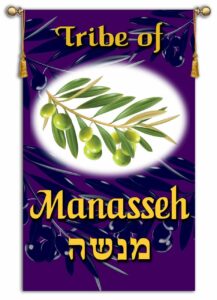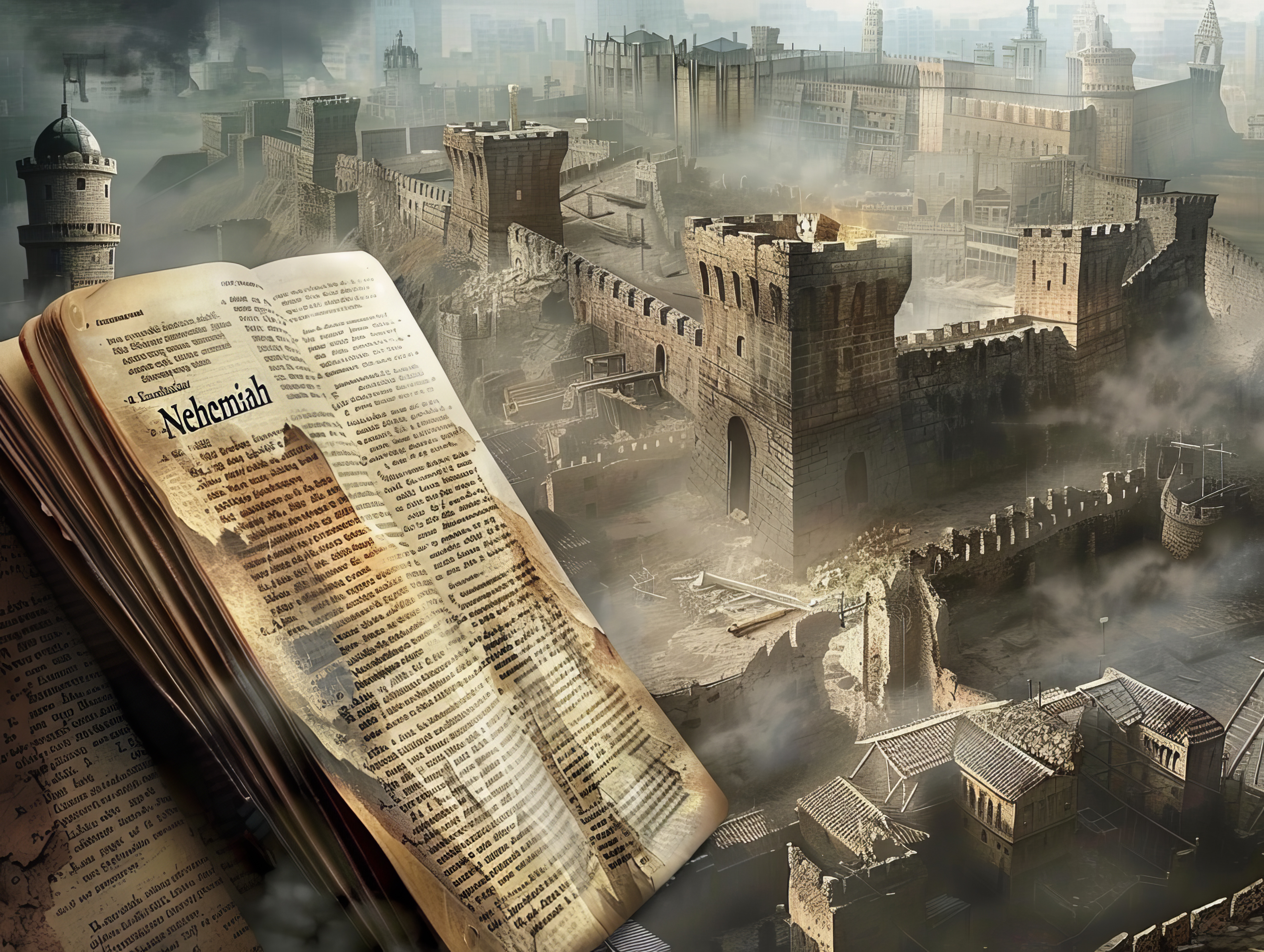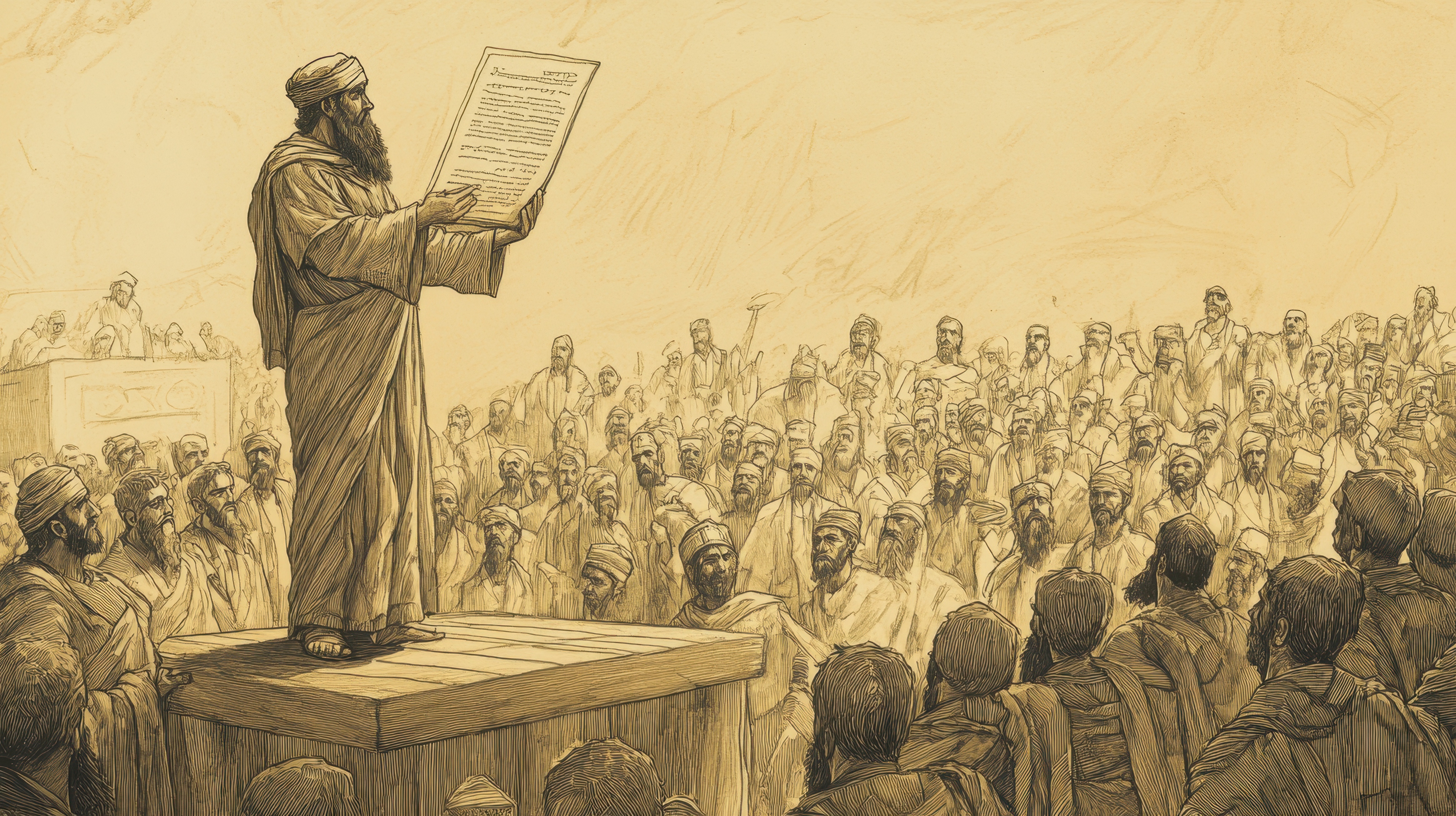1 Chronicles 5:23-26 Manasseh’s ½

It’s time to look into the rolls of the half of the tribe of Manasseh who stayed east of the Jordan. I have some questions for them!
We don’t really go into their genealogy today but into what became of them instead. I can’t say I’m sorry about missing out on their root structure. I would dance for joy if it weren’t such a sad situation for them.
What the author does give us is the names of the heads of the tribe at the time of captivity, I think. There is a list of seven leaders, “mighty warriors, famous men, heads of their fathers’ houses” (verse 24b). The tribe had to be pretty big to need so many leaders. These must have been the “clan” leaders. We are told that the tribe was “very numerous” (verse 23b) and filled a large portion of land. I’m no map expert but, from what I see on the maps, they had the lion’s share of the territory on the eastern side of the Jordan. And this is only for HALF of their tribe! God blessed them.
But they abandoned God.
Let that lay there for a bit. Think about all He did for them including allowing them to have TWO territories and giving them their own tribe from the roots of their father, Joseph.
Manasseh was no different from the rest of the tribes of Israel on how they turned to other gods. We can’t single them out for extra guilt or shame among their brothers. But we can hold them accountable for their actions. Just as we are accountable for ours.
I have a couple of questions I want to ask regarding this tribe. 1) why did they split in two, 2) how did they make the decision as to who stays and who moves on, 3) did their distance to the Temple of God play into their ‘distance’ spiritually from Him?
What caused the division in this tribe? Half of them chose not to cross over into the Promised Land with Joshua. This is the only tribe that split in two. Did they maintain ties with the other half of their tribe? Looking at some of the maps their territories abutted one another. Did the people move back and forth freely between the two sides or were there entrenched separations? I am going to guess that they divided by clans instead of individual small family groups. I wonder what could have been so deep as to split this tribe.
Who chose which clans crossed over and which remained? Was the assignment done by occupation? Reuben’s clan wanted to stay on the eastern bank because the land was good for raising sheep. Were the half of the tribe of Manasseh that stayed also shepherds? Were those who crossed over of a different occupation? Did some of the clans have stronger ties to the other two tribes who stayed? Reuben and Gad camped on the same side of the Tabernacle while in the wilderness but Manasseh didn’t. They were the middle tribe in their configuration. So how did they make ties strong enough to bind them to the eastern bank with Gad and Reuben?
When Judah was split off from the rest of Israel, these three tribes didn’t pull up stakes and join those in the north. Simeon might have because he was right in the middle of Judah, but that is another story. Judah and Benjamin shared a border at Jerusalem. They also united when the rest of the tribes broke away. Were they barred (strongly encouraged) to stay away from Jerusalem when Jeroboam made his idols? Did they travel to the idols to make sacrifices or did they have something set up of their own instead? Did Jeroboam give it to them? Did they have something before that time because of the travel distance? I seem to remember a story about them building an altar on the eastern side of the Jordan and those on the western side becoming outraged by it. I Googled it and found the altar of witness that was set up by the 2.5 tribes as a reminder (Joshua 22). I wonder if they made this their new altar.
So what can we take from today’s reading? I think the main thing is the ‘distance’ issue. Today we are not told that we have to go to one place to seek the Lord. Because of Jesus’ work on the cross, He is with us in Spirit wherever we are. But we can still be ‘distant’ from Him. Our distance is not made up in miles but in attitude and time. He calls for us to spend time in His presence daily. He asks for our time and attention. If we withhold these from Him then we too will fall into the same sin Manasseh did; chasing after other gods. We have to work on our relationship with Him for it to survive and thrive. Go to Him every day. Spend time in His word. Sing songs. Talk to Him, in prayer and in every day conversation. Build your relationship diligently or it will crumble under neglect.
God sends us challenges to shake us and wake us up to the state of our relationship just like He did with Israel. Take a lesson from them. Wake up before it’s too late!
Father God, thank You that You send me wake up calls. Thank You that You draw me back in daily. Thank You for the songs You place in my heart each day and for meeting me in Your word. THANK YOU for making my heart LONG to come each day instead of feeling like I HAVE to come as a duty. I LOVE the time we spend together here! Thank You for meeting me ‘in the garden’.




